[Anchor]
On the other hand, Korean electric vehicles are struggling in the Chinese market due to the aggressive push from Chinese electric vehicles.
In the U.S. market, where they have invested considerable effort, they are facing a dire situation due to consecutive tariff impacts.
The situation of Korean electric vehicles, which are experiencing this double whammy, has been examined by reporter Jeong Jae-woo.
[Report]
Since entering China in 2002, Hyundai Motor Group has consistently participated in the Shanghai Motor Show.
This year, they did not participate for the first time.
The significant impact of poor sales in China was a major factor.
Once selling over a million units, their market share in China has now dropped to nearly 0% due to the THAAD incident and COVID-19.
This has also affected electric vehicles.
They are planning to launch a China-specific electric vehicle in the second half of this year to turn things around, but they are being outpaced by cheaper Chinese electric vehicles that now match their technology.
Instead, our companies have turned their eyes to the U.S.
[Chung Eui-sun/Chairman of Hyundai Motor Group/Mar. 24: "We are also proud to open our new $8 billion auto plant in Georgia. With this, our U.S. vehicle production will exceed 1 million units per year."]
Last year, they achieved the highest performance ever in the U.S. market, and in the first quarter of this year, they ranked third with an 8% market share in electric and eco-friendly vehicles.
However, this time, Trump's tariff policy has become an issue.
Starting this month, a 25% tariff has been imposed on automobiles.
There are even analyses suggesting that Hyundai and Kia's operating profit could decrease by nearly 6 trillion won.
The electric vehicle market is already suffering from stagnant demand these days.
Ultimately, securing price competitiveness in addition to technological prowess is seen as the only solution.
[Kwon Yong-joo/Professor of Automotive Transportation Design at Kookmin University: "The product quality of Korean electric vehicles is indeed recognized globally. However, they are relatively more expensive compared to competing countries..."]
Overcoming the offensive of Chinese electric vehicles, which are penetrating our domestic market with 'price' as their weapon, is also a challenge that needs to be addressed.
This is KBS News, Jeong Jae-woo.
On the other hand, Korean electric vehicles are struggling in the Chinese market due to the aggressive push from Chinese electric vehicles.
In the U.S. market, where they have invested considerable effort, they are facing a dire situation due to consecutive tariff impacts.
The situation of Korean electric vehicles, which are experiencing this double whammy, has been examined by reporter Jeong Jae-woo.
[Report]
Since entering China in 2002, Hyundai Motor Group has consistently participated in the Shanghai Motor Show.
This year, they did not participate for the first time.
The significant impact of poor sales in China was a major factor.
Once selling over a million units, their market share in China has now dropped to nearly 0% due to the THAAD incident and COVID-19.
This has also affected electric vehicles.
They are planning to launch a China-specific electric vehicle in the second half of this year to turn things around, but they are being outpaced by cheaper Chinese electric vehicles that now match their technology.
Instead, our companies have turned their eyes to the U.S.
[Chung Eui-sun/Chairman of Hyundai Motor Group/Mar. 24: "We are also proud to open our new $8 billion auto plant in Georgia. With this, our U.S. vehicle production will exceed 1 million units per year."]
Last year, they achieved the highest performance ever in the U.S. market, and in the first quarter of this year, they ranked third with an 8% market share in electric and eco-friendly vehicles.
However, this time, Trump's tariff policy has become an issue.
Starting this month, a 25% tariff has been imposed on automobiles.
There are even analyses suggesting that Hyundai and Kia's operating profit could decrease by nearly 6 trillion won.
The electric vehicle market is already suffering from stagnant demand these days.
Ultimately, securing price competitiveness in addition to technological prowess is seen as the only solution.
[Kwon Yong-joo/Professor of Automotive Transportation Design at Kookmin University: "The product quality of Korean electric vehicles is indeed recognized globally. However, they are relatively more expensive compared to competing countries..."]
Overcoming the offensive of Chinese electric vehicles, which are penetrating our domestic market with 'price' as their weapon, is also a challenge that needs to be addressed.
This is KBS News, Jeong Jae-woo.
■ 제보하기
▷ 카카오톡 : 'KBS제보' 검색, 채널 추가
▷ 전화 : 02-781-1234, 4444
▷ 이메일 : kbs1234@kbs.co.kr
▷ 유튜브, 네이버, 카카오에서도 KBS뉴스를 구독해주세요!
- Double blow to Korean EVs
-
- 입력 2025-04-23 23:54:37
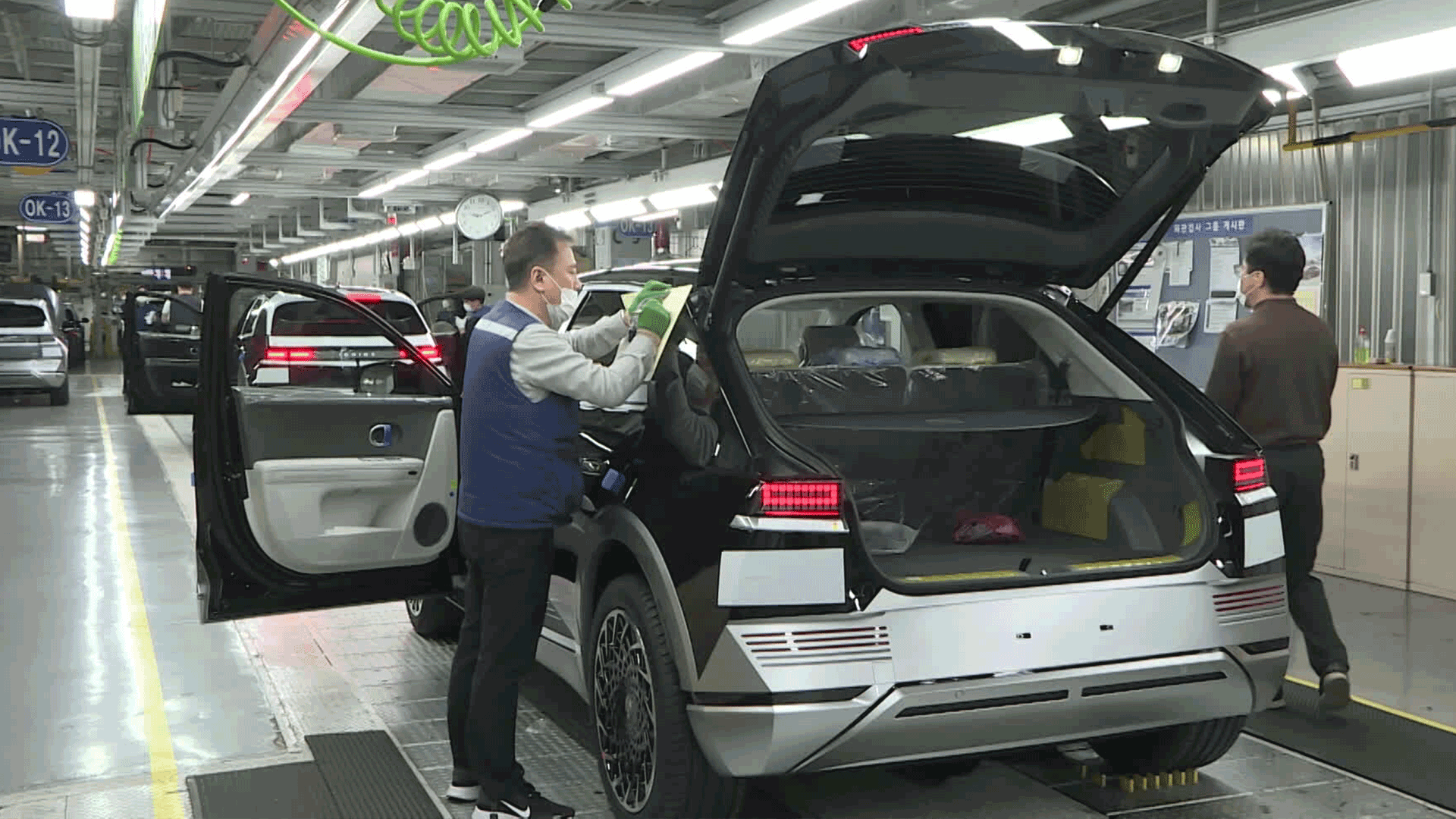
[Anchor]
On the other hand, Korean electric vehicles are struggling in the Chinese market due to the aggressive push from Chinese electric vehicles.
In the U.S. market, where they have invested considerable effort, they are facing a dire situation due to consecutive tariff impacts.
The situation of Korean electric vehicles, which are experiencing this double whammy, has been examined by reporter Jeong Jae-woo.
[Report]
Since entering China in 2002, Hyundai Motor Group has consistently participated in the Shanghai Motor Show.
This year, they did not participate for the first time.
The significant impact of poor sales in China was a major factor.
Once selling over a million units, their market share in China has now dropped to nearly 0% due to the THAAD incident and COVID-19.
This has also affected electric vehicles.
They are planning to launch a China-specific electric vehicle in the second half of this year to turn things around, but they are being outpaced by cheaper Chinese electric vehicles that now match their technology.
Instead, our companies have turned their eyes to the U.S.
[Chung Eui-sun/Chairman of Hyundai Motor Group/Mar. 24: "We are also proud to open our new $8 billion auto plant in Georgia. With this, our U.S. vehicle production will exceed 1 million units per year."]
Last year, they achieved the highest performance ever in the U.S. market, and in the first quarter of this year, they ranked third with an 8% market share in electric and eco-friendly vehicles.
However, this time, Trump's tariff policy has become an issue.
Starting this month, a 25% tariff has been imposed on automobiles.
There are even analyses suggesting that Hyundai and Kia's operating profit could decrease by nearly 6 trillion won.
The electric vehicle market is already suffering from stagnant demand these days.
Ultimately, securing price competitiveness in addition to technological prowess is seen as the only solution.
[Kwon Yong-joo/Professor of Automotive Transportation Design at Kookmin University: "The product quality of Korean electric vehicles is indeed recognized globally. However, they are relatively more expensive compared to competing countries..."]
Overcoming the offensive of Chinese electric vehicles, which are penetrating our domestic market with 'price' as their weapon, is also a challenge that needs to be addressed.
This is KBS News, Jeong Jae-woo.
On the other hand, Korean electric vehicles are struggling in the Chinese market due to the aggressive push from Chinese electric vehicles.
In the U.S. market, where they have invested considerable effort, they are facing a dire situation due to consecutive tariff impacts.
The situation of Korean electric vehicles, which are experiencing this double whammy, has been examined by reporter Jeong Jae-woo.
[Report]
Since entering China in 2002, Hyundai Motor Group has consistently participated in the Shanghai Motor Show.
This year, they did not participate for the first time.
The significant impact of poor sales in China was a major factor.
Once selling over a million units, their market share in China has now dropped to nearly 0% due to the THAAD incident and COVID-19.
This has also affected electric vehicles.
They are planning to launch a China-specific electric vehicle in the second half of this year to turn things around, but they are being outpaced by cheaper Chinese electric vehicles that now match their technology.
Instead, our companies have turned their eyes to the U.S.
[Chung Eui-sun/Chairman of Hyundai Motor Group/Mar. 24: "We are also proud to open our new $8 billion auto plant in Georgia. With this, our U.S. vehicle production will exceed 1 million units per year."]
Last year, they achieved the highest performance ever in the U.S. market, and in the first quarter of this year, they ranked third with an 8% market share in electric and eco-friendly vehicles.
However, this time, Trump's tariff policy has become an issue.
Starting this month, a 25% tariff has been imposed on automobiles.
There are even analyses suggesting that Hyundai and Kia's operating profit could decrease by nearly 6 trillion won.
The electric vehicle market is already suffering from stagnant demand these days.
Ultimately, securing price competitiveness in addition to technological prowess is seen as the only solution.
[Kwon Yong-joo/Professor of Automotive Transportation Design at Kookmin University: "The product quality of Korean electric vehicles is indeed recognized globally. However, they are relatively more expensive compared to competing countries..."]
Overcoming the offensive of Chinese electric vehicles, which are penetrating our domestic market with 'price' as their weapon, is also a challenge that needs to be addressed.
This is KBS News, Jeong Jae-woo.
-
-
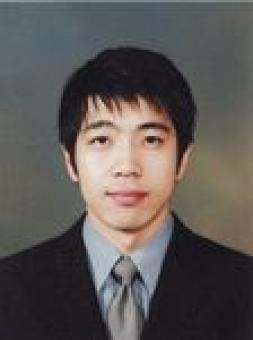
정재우 기자 jjw@kbs.co.kr
정재우 기자의 기사 모음
-
이 기사가 좋으셨다면
-
좋아요
0
-
응원해요
0
-
후속 원해요
0










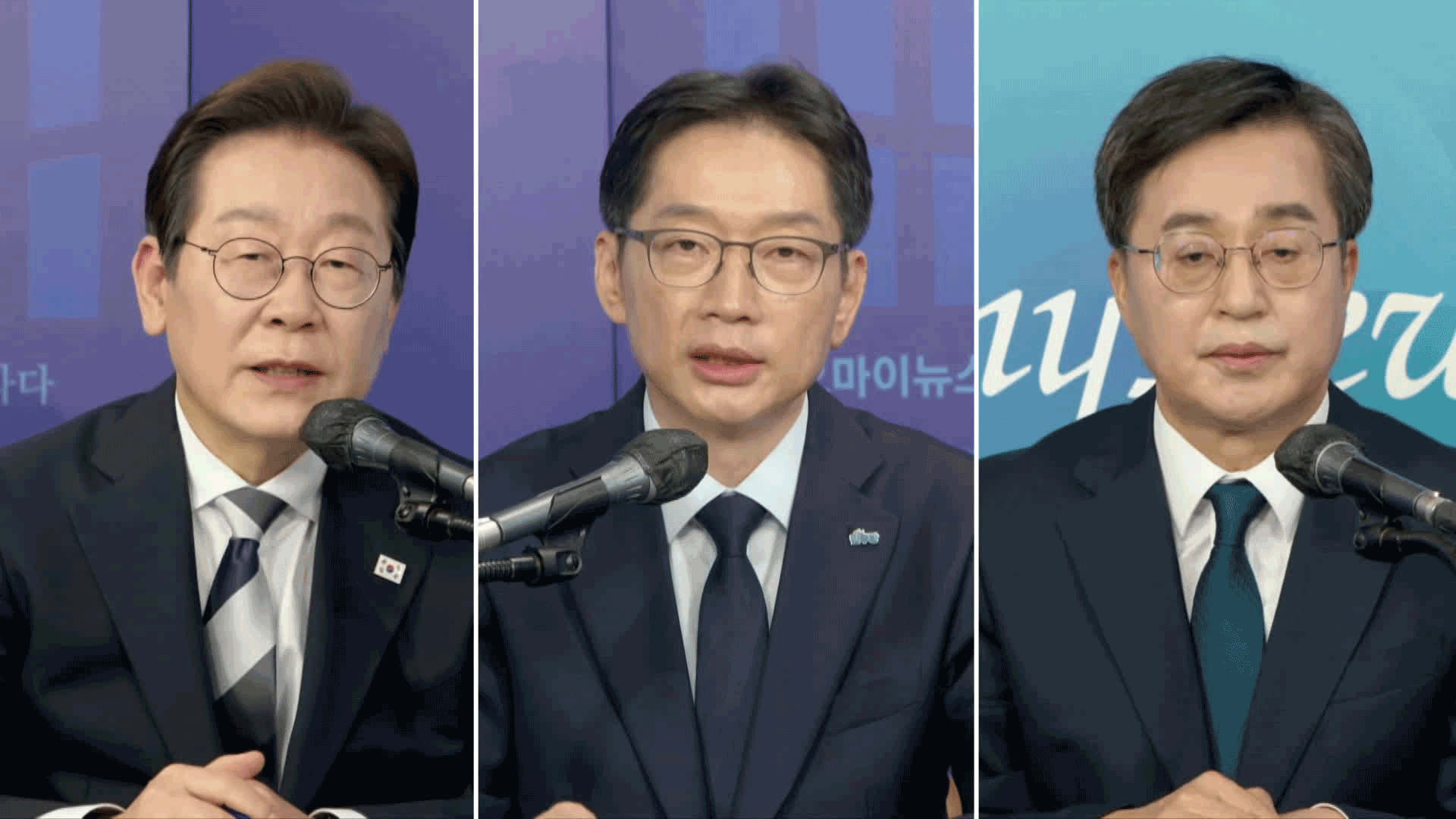
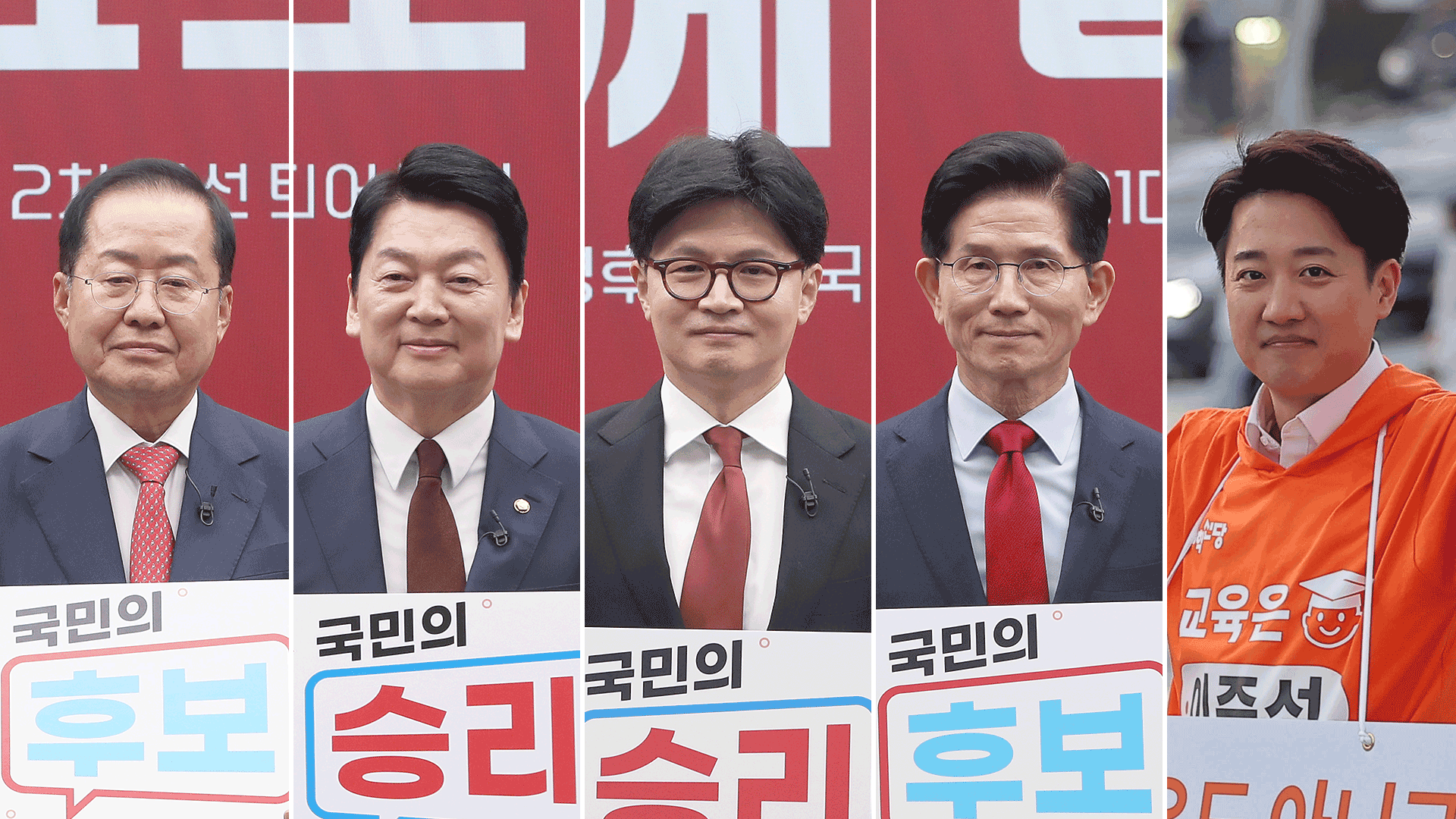
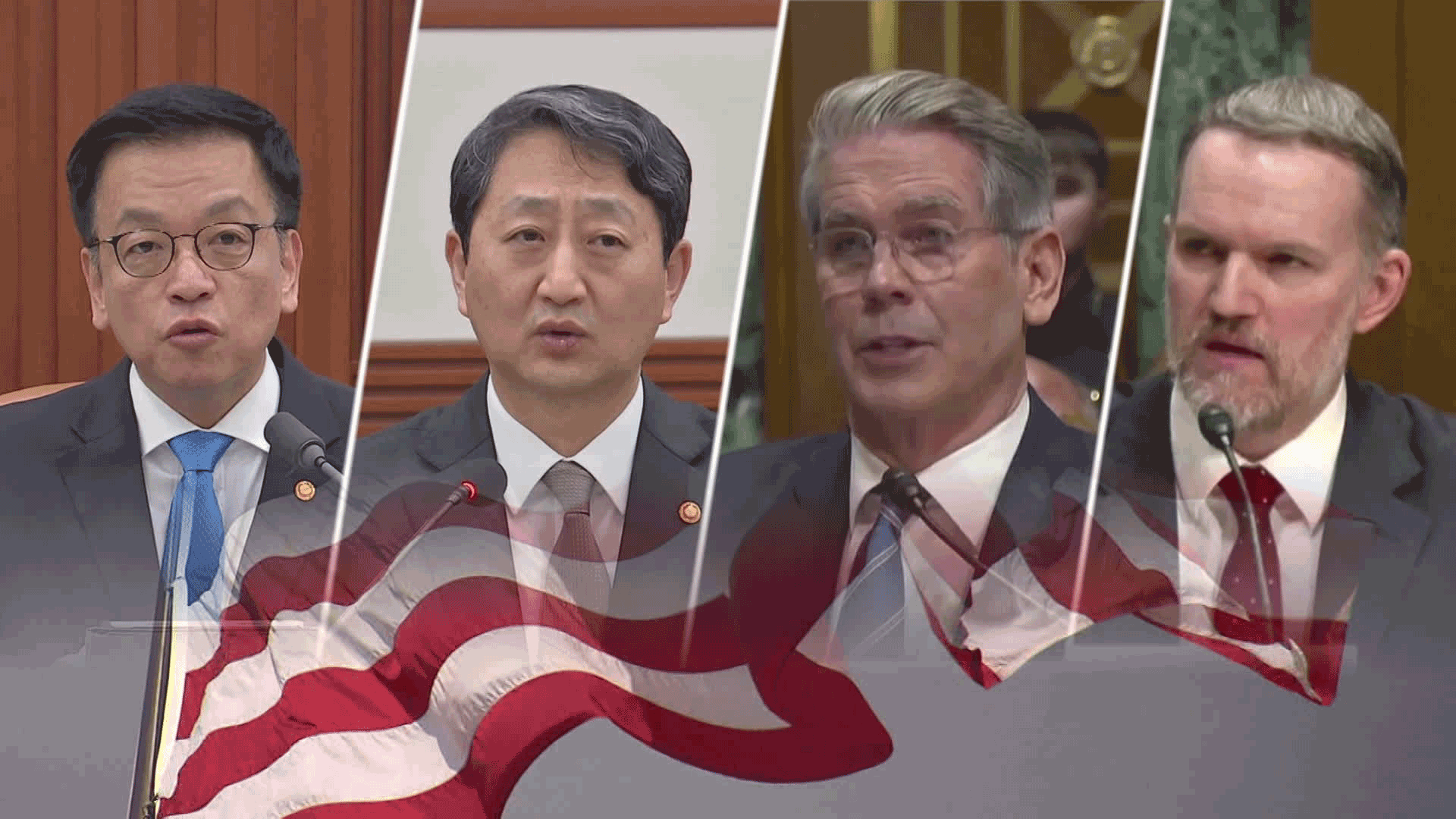
![[단독] 강동구 땅 꺼짐 ‘설계보다 4배 초과 굴착’…지하작업 일지 입수](/data/news/2025/04/23/20250423_If0y5m.png)

이 기사에 대한 의견을 남겨주세요.